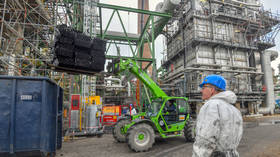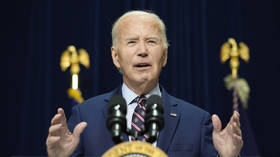Italy reduces dependence on Russian gas – Bloomberg

Italy has overtaken Germany in terms of cutting Russian gas imports, Bloomberg reported on Wednesday.
According to the outlet, which cites daily transport data from the Italian energy infrastructure company SNAM, Russia’s share of Italy's gas imports has fallen from 40% to 25% over the past six months.
In comparison, Germany, Europe’s largest economy, still depends on Russian gas for around 35% of its imports, the report states.
Following the launch of the Russian military operation in Ukraine back in February, the Italian authorities made a strategic decision to find alternative sources of fuel, Italian Prime Minister Mario Draghi told reporters on July 12.
“Italy cannot be in a situation of geopolitical dependence. This is unacceptable. We acted quickly,” Draghi said.
In order to diversify supplies, the government and state-owned company Eni agreed to increase imports from African countries. According to SNAM, Italy now imports twice as much gas from Algeria than from Russia.
Also, SNAM recently bought two floating storage regasification units to add liquefied natural gas (LNG) capacity. Meanwhile, gas storage facilities in Italy are currently about 60% full, Bloomberg notes.
Europe has been in the grip of an energy crisis ever since last year, but the situation was recently exacerbated by the EU’s sanctions against Russia. The bloc adopted a plan dubbed REPowerEU, which aims to reduce Europe’s overall energy dependence on Russia. Under the plan, Brussels aims to fill gas storage facilities to at least 80% by early November in order to prepare for the next heating season.
Also, European governments have been urging the public to save electricity now to avoid having to cut back on consumption in the winter. However, the summer heatwave is making it difficult as people are forced to use air conditioning. Some countries, including Germany and Italy, have been considering reopening coal-fired power plants and rationing gas in order to help mitigate the crisis.
For more stories on economy & finance visit RT's business section













